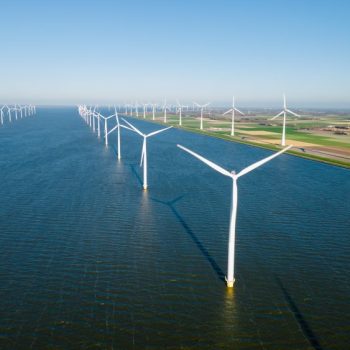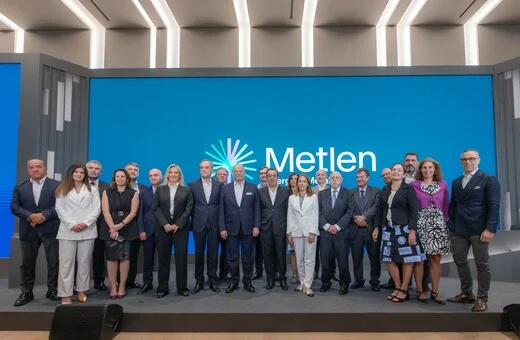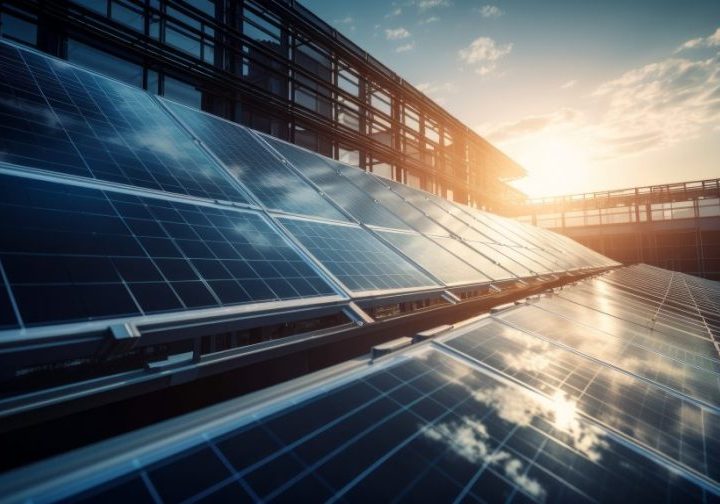
ZeroAvia, the leading innovator in decarbonising commercial aviation, has secured £12.3m ($16.3m) in Government funding through the ATI Programme to deliver a breakthrough 19-seat hydrogen-electric powered aircraft that is market-ready by 2023.
The UK Government grant for the HyFlyer II project will see ZeroAvia develop a certifiable hydrogen-electric powertrain that can power airframes carrying up to 19 passengers. To do this, it will collaborate with two partners, the European Marine Energy Centre and Aeristech. The HyFlyer II project will conclude with another world’s first hydrogen-electric flight by ZeroAvia in a 19-seat aircraft, with a 350 mile flight in early 2023.
The Government support for ZeroAvia’s 19-seat programme comes as the company also announces £16m ($21.4m) in Series A venture funding.
The grant award follows ZeroAvia’s world first flight of a commercial-grade hydrogen-electric aircraft at Cranfield in September, utilising a smaller version of ZeroAvia’s hydrogen fuel cell powertrain in a 6-seat Piper Malibu M350. This earlier flight was a milestone for the first HyFlyer project, which was also supported with a grant from the ATI Programme.
HyFlyer II will build on this success by bringing to market the first hydrogen-electric powertrain suitable for aircraft of up to 19-seats by 2023. Typically, up to 19-seat aircraft such as the Cessna 208 Caravan and the Viking Air DHC-6 Twin Otter are used in regional aviation and cargo transport worldwide. ZeroAvia’s 600kW hydrogen-electric powertrain is platform-agnostic and will begin to make zero carbon flight over meaningful distances a reality for passengers.
The announcements of the HyFlyer II programme and Series A investment come just days after British Airways announced a partnership with ZeroAvia to speed up the switch to hydrogen-powered aircraft as part of IAG’s Hangar 51 tech accelerator programme.
Hydrogen fuel-cell technology has been acknowledged by aerospace leaders and majors such as the European Regions Airlines Association and Airbus as the most practical way of rapidly removing carbon emissions from aviation.
For the HyFlyer II project, ZeroAvia is working again with the European Marine Energy Centre (EMEC) to deliver the green hydrogen fuelling systems required to power the aircraft for flight tests, including through mobile fuelling platforms suited to airport environments.
HyFlyer II is an important next step for ZeroAvia’s sequential R&D pathway to realising the transformational possibilities of moving from fossil fuels to zero-emission hydrogen as the primary energy source for commercial aviation. Eventually, and without any new fundamental science required, hydrogen-powered aircraft will match the flight distances and payload of the current fossil fuel aircraft.
Recently, ZeroAvia was also invited by Prime Minister Boris Johnson to join the UK’s Jet Zero Council and help lead the UK towards the ambitious goal of achieving the first ever zero emission long haul passenger flight.
ZeroAvia will also for the first time partner with Aeristech, a leading developer of power dense and efficient air compressor solutions. Adding Aeristech to the list of collaborators for HyFlyer II allows ZeroAvia to utilise the company’s advanced air compressor system as part of the new 19-seat powertrain.
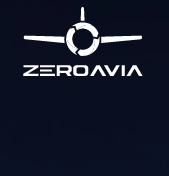
About ZeroAvia:
ZeroAvia is a leader in zero-emission aviation, focused on hydrogen-electric aviation solutions to address a variety of markets, initially targeting 500 mile range in 10-20 seat aircraft used for commercial passenger transport, package delivery, agriculture, and more. Based in London and California, ZeroAvia has already secured experimental certificates for its two prototype aircraft, passed significant flight test milestones such as its successful world’s first hydrogen-electric flight in September 2020, and is on track for commercial operations in 2023. The company’s expanding UK operations are partially supported by the grant from the UK’s Aerospace Technology Institute and Innovate UK, and ZeroAvia is part of the UK Government’s Jet Zero Council. For more, please visit ZeroAvia.com, follow @ZeroAvia on Twitter, Instagram, and LinkedIn.
About HyFlyer:
The HyFlyer project aims to decarbonise medium range small passenger aircraft by demonstrating powertrain technology to replace conventional piston engines in propeller aircraft.
HyFlyer will demonstrate a phased approach from battery power to hydrogen power, integrating the new technology aboard a Piper M-class aircraft, which will perform initial test flights out of Cranfield and culminate in a 250 – 300 nautical mile (NM) demonstration flight out of an airfield in Orkney.
The HyFlyer project is supported by the ATI Programme, a joint Government and industry investment to maintain and grow the UK’s competitive position in civil aerospace design and manufacture. The programme, delivered through a partnership between the Aerospace Technology Institute (ATI), Department for Business, Energy & Industrial Strategy (BEIS) and Innovate UK, addresses technology, capability and supply chain challenges.
Val Miftakhov, CEO, ZeroAvia comments:
“We are delighted with the ATI’s decision to back our 19-seat powertrain development programme. This project is instrumental for delivering a market-ready hydrogen powered solution for 2023 that makes passenger-ready zero carbon aviation a reality. It once again demonstrates the ‘Jet Zero’ ambition of the UK Government to take a leading role in making flight sustainable and we are proud that they have put their faith in us again to deliver another milestone for hydrogen-electric aviation.”
Neil Kermode, Managing Director at EMEC comments:
“We’re thrilled to be supporting the HyFlyer II project. This is an important milestone for UK aerospace, which will exploit EMEC’s world-leading hydrogen activities. As well as providing green hydrogen to demonstrate zero carbon aviation, EMEC will develop a hydrogen refuelling solution capable of dispensing volumes approaching the speed of commercial aviation. This will be a major step forward for the sector.”
Energy Minister, Kwasi Kwarteng, said:
“Next year, as the UK assumes the Chair of the G7 nations and hosts COP26, we have an exciting opportunity to lead through example on climate change as we power towards net zero with our new ambitious plan to put the UK at the forefront of the green industrial revolution and a green jobs boom.
ZeroAvia’s HyFlyer II project will bring yet another first for zero-emission flight to British skies, boosting our work through the Jet Zero Council, as well as positioning the country as a leader in green aviation technology and ensuring the UK builds back greener after the pandemic.”
Duncan Kerr, CEO of Aeristech comments:
“We’re excited to be partnering with ZeroAvia and contributing to the HyFlyer II project. Our world leading power dense and efficient compressor technology is designed to enable hydrogen fuel cells to power the future of zero emissions transport, and we cannot wait to work with Val and the team to put it into action for aviation.”
Gary Elliott, CEO of the Aerospace Technology Institute, said:
“The HyFlyer project, funded by the ATI Programme, grabbed the world’s attention with its pioneering flight just a few months ago. The ATI is pleased to support the successor to that project, HyFlyer II, which will ensure the UK is once again the home of a major step forward in sustainable aerospace technology.”
— Department for Business Energy & Industrial Strategy (BEIS), Aerospace Technology Institute (ATI) and Innovate UK back the further development of ZeroAvia’s hydrogen fuel cell powertrain for commercial aviation through £12.3m grant ($16.3m); with funding matched by project partners.
— “HyFlyer II” will deliver the first certifiable hydrogen-electric powertrain for aircraft of up to 19-seats, making zero emissions flight a reality for passengers.
— World-leading research body European Marine Energy Centre (EMEC) and innovators Aeristech to collaborate with ZeroAvia.
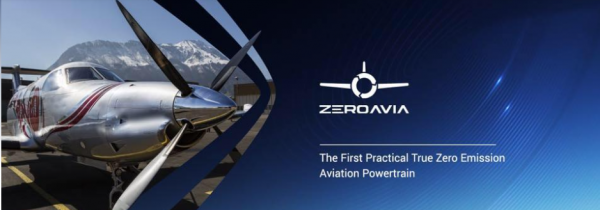
ZeroAvia Secures Additional $21.4 Million in Venture and $16.3 Million in Grant Funding to Accelerate its Hydrogen-Electric Powertrain Solutions for Zero-Emission Airplanes
— Investments from Amazon Climate Pledge Fund, Breakthrough Energy Ventures, Ecosystem Integrity Fund, Horizons Ventures, Shell Ventures, and Summa Equity.
— Approval of additional grant funding of $16.3 million from Department for Business Energy & Industrial Strategy (BEIS), Aerospace Technology Institute (ATI), and Innovate UK.
— Partnership with British Airways, through Hanger 51 Accelerator to explore how hydrogen-powered aircraft can play a leading role in the future of sustainable flying.
ZeroAvia’s mission to transition the world to zero-emission, hydrogen-fueled flight picked up a significant tailwind today as the startup announced $21.4 million in new funding in a Series A round. Breakthrough Energy Ventures and Ecosystem Integrity Fund led the raise, with follow-on investors Amazon Climate Pledge Fund, Horizons Ventures, Shell Ventures, and Summa Equity. In addition, the company established a partnership with British Airways and received approval for new UK government funding through the ATI Programme to deliver an additional $16.3 million of non-dilutive funding breakthrough 19-seat hydrogen-electric powered aircraft that is market-ready by 2023. The latest announcement brings the total new funding to $37.7 million and the total funding since inception to $49.7 million.
The fundraise allows ZeroAvia to accelerate the development of its hydrogen-electric powertrain further. The Series A funds the next phase of the company’s R&D program, which focuses on developing and testing the certification-ready ZA-600 powertrain capable of flying 10-20 seat aircraft up to 500 miles. The investment comes on the heels of the company completing the UK’s first-ever commercial-scale battery-electric flight in June 2020 and the first flight of the largest hydrogen fuel cell aircraft in September 2020 as part of the innovative HyFlyer I project. ZeroAvia expects a long-distance flight of 250 miles in the next three months.
ZeroAvia offers the first practical hydrogen-fueled powertrain technology to replace conventional engines in propeller aircraft resulting in zero-emission and lower noise and dramatically lower fuel and maintenance costs and significant total trip cost reduction. Focused on hydrogen aviation solutions that address various markets, ZeroAvia expects to achieve commercialization as early as 2023 and demonstrate flights up to 500 miles in aircraft up to 20 seats. By 2026, ZeroAvia intends to realize flights over 500 miles range in aircraft with up to 80 seats, and by 2030 over 1,000-mile flights in aircraft with over 100 seats.
Val Miftakhov, founder and CEO of ZeroAvia, said:
“Our most recent milestone achievements are closing the gap for the airline industry to begin its transition away from fossil fuels. In fact, over ten forward-looking airlines are now gearing up to implement our powertrains when they are ready in 2023. Both aviation and the financial markets are waking up to the idea that hydrogen is the only meaningful path towards large-scale, zero-emission commercial flight. Powering a 100-seat plane on hydrogen is not out of the question. We feel deeply grateful to our top-tier investors for joining us in the next phase of our exciting journey; to bring in a new golden age of aviation.”
Devin Whatley, managing partner at Ecosystem Integrity Fund, said:
“We see tremendous potential for hydrogen to decarbonize transportation, a core focus of our investment strategy. With aviation being such a significant contributor to global greenhouse gas emissions, and also one of the trickiest areas to decarbonize, we believe ZeroAvia offers the only near-term solution to sustainable aviation and has already made significant progress toward achieving this goal. We are excited to see how they continue to grow and develop with our support.”
Carmichael Roberts, Breakthrough Energy Ventures, said:
“Hydrogen fuel is a critical component in the transition to a sustainable economy—particularly in the airline industry, which is on track to become one of the largest contributors to climate change. ZeroAvia’s hydrogen-electric power train offers a realistic solution for long-range commercial flights and has already been demonstrated in commercial-scale aircraft. We look forward to working with them on this mission and decarbonizing aviation together.”
Kara Hurst, VP Worldwide Sustainability, Amazon, said:
“Amazon created The Climate Pledge Fund to support the development of technologies and services that will enable Amazon and other companies to reach the goals of the Paris Agreement ten years early—achieving net zero carbon by 2040. ZeroAvia’s zero-emission aviation powertrain has real potential to help decarbonize the aviation sector, and we hope this investment will further accelerate the pace of innovation to enable zero-emission air transport at scale.”
Elisabeth Brinton, Executive Vice President New Energies at Shell, said:
“In their respective journeys towards net-zero emissions, each industry faces its own unique challenges. ZeroAvia’s work in hydrogen pushes the limits of the imagination—and brings the aviation industry a small step closer to the possibility of net zero-emissions flights. This is innovation at its finest, and Shell is excited to support it.”
The funding is on the heels of a partnership with British Airways in a project to explore how hydrogen-powered aircraft can play a leading role in the future of sustainable flying. With sustainability of increasing importance at British Airways, the collaboration will embed ZeroAvia in the heart of the airline to work alongside mentors and experts to explore the transformational possibilities of moving from fossil fuels to zero-emission hydrogen to power the airline’s future fleet. The partnership forms part of the International Airlines Group’s industry-leading Hangar 51 accelerator programme.
ZeroAvia was also recently recognized as a TIME Best Invention of 2020 in the experimental category and secured a spot on the Cleantech Group’s 2020 50TOWATCH list, which awards early-stage private companies delivering innovative solutions to combat the climate crisis. Additionally, the company has secured spots in the top sustainability and aerospace accelerators Elemental Excelerator and Starburst aerospace accelerator.
About Ecosystem Integrity Fund:
Ecosystem Integrity Fund (EIF) invests in early growth-stage companies contributing to environmental sustainability across multiple sectors including renewable energy, energy efficiency, waste reduction, green chemistry, transportation, agriculture, and water. EIF takes a systems-based approach to sustainability investment, studying both the drivers for change as well as the constraints to innovation in market niches that are ripe for development. EIF invests in companies solving real problems, resulting in better investment opportunities and greater impact. For more information, visit: www.ecosystemintegrity.com
About Breakthrough Energy Ventures:
Breakthrough Energy Ventures (BEV) invests in companies that leverage innovative technologies to help address climate change. Backed by many of the world’s top business leaders, BEV has more than $1 billion in committed capital to support bold entrepreneurs building companies that can significantly reduce emissions from agriculture, buildings, electricity, manufacturing, and transportation. The fund was created in 2016 by the Breakthrough Energy Coalition. Visit www.breakthroughenergy.org to learn more.






